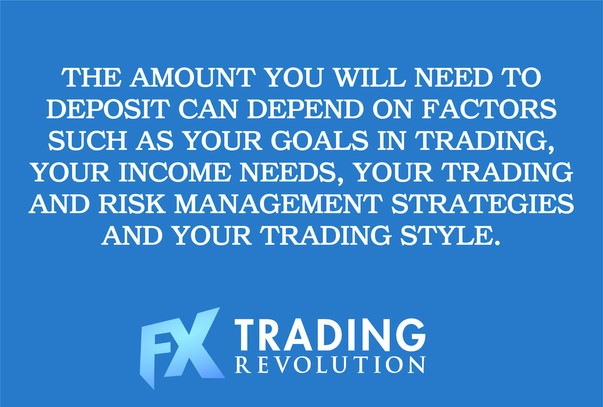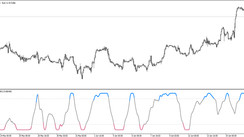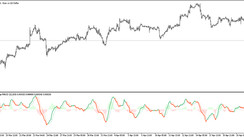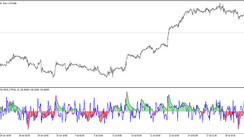Anyone who is into Forex trading more seriously has probably started with one ultimate goal – to be able to live from the generated profits by trading the currency market. Novice traders, however, commonly misunderstand how this can be done - largely due to misleading advertisements and sales schemes by Forex companies.
These misconceptions regarding Forex trading as a source of income can lead to large losses for the traders as they take on excessive risk based on unrealistic expectations. As we’ve discussed a countless number of times in our posts here at Fx Trading Revolution, risk management is the most important pillar for first, surviving in Forex trading and then being profitable in the long run.
So, without any further ado, let’s get into clearing up some misconceptions regarding Forex trading as a source of income and how much capital would one need to deposit in their Forex account in order be able to generate an income from it.
Being undercapitalized is among the top reasons for blowing up accounts
If you think that you can deposit 200 Dollars and quickly grow that account into something that will allow you to quit your job in a few months then you’ve been completely misguided about this.
In fact, one of the top reasons for blown up accounts by inexperienced traders is being undercapitalized. And again, this is mainly because of marketing tricks employed primarily by Forex brokers to convince clients to deposit as much money as they can get them to deposit.
The truth is, you will need more than a few hundred or a few thousand Dollars to make Forex a main source of income. That, of course, is if you intend to use Forex as a source of income right from the start. If, on the other hand, you have several years to put into Forex before being able to live on it, then you could grow that four or five thousand dollars into something more that would be appropriate for an account that’s going to be used as a source of income.
Make sure your deposit/capital is right for your strategy and your needs
Let’s start with some basic math first.
If you are going to live on your profits from trading, you’ll want to take money out on a regular basis, e.g. every month.
That means your profits must at least equal the amount you take out or better yet – be higher than that in order to keep the account growing over time. So, for example, if you are withdrawing 2000 US Dollars per month, then you need to be making at least 2000 USD in profits every month in order to maintain your account balance unchanged. If your monthly profits are only 1000 USD then your balance would be actually declining and over time it would shrink significantly.
So, we’ll not suggest any specific $$$ numbers here as the appropriate deposit amount, but rather we will leave that for you to calculate based on your income needs, the performance of your strategy and your risk preferences.
Know what you want to achieve
The amount you will need to deposit can depend on many factors such as your goals in trading, your trading and risk management strategies and your trading style.
What are your goals and long-term intentions with trading?
The answer to these questions gives different numbers that would be appropriate for a starting deposit.
One person may want to withdraw 5000 USD per month while for another maybe 500 USD will be enough. Depending on this, the appropriate balance in the accounts would differ. Obviously, the more money you want to take out for your living expenses the more you will need to deposit in the first place.
Your trading strategy and risk management
If you are willing to take bigger risks in order to grow your account faster, then you would be able to start with a smaller amount for your first deposit. However, you must keep in mind that by doing this, the risks of you blowing up the account completely are also rising.
Nevertheless, in regards to the deposit amount, the bigger the profit potential of your strategies the lower the amount you need to deposit. Again, it’s important to keep this in perspective and keep your expectations real because a higher profit potential also means higher risks for losses as leverage and those huge lot sizes can work against you just as they work for you.
Your trading style
Are you going to day trade, scalp, swing trade or position trade the market?
What is the maximum stop loss size you expect to use on any one of your trades? Or do you have a maximum limit?
Answers to these questions would also suggest different appropriate deposit amounts for a Forex trading account. Generally, a position trader will need more capital since the size of his stop losses will be much greater than those of the scalper or the day trader.
Play it safe and keep the right perspective
Now, obviously, the more money you put in the better because your opportunities will be greater.
Gamblers, however, do not get very far in trading. The most important point to remember is to keep the risks in check and to look at your trading results in percentage terms. So if you’ve made a profit of 1000 dollars in 6 months with a starting deposit of 2000 dollars then that’s a huge 50% profit on your investment. That’s not bad at all, even though the number 1000 USD may look small for a period of 6 months.

Again, the point is, in order to make more money, you need to deposit more because in the end, everything ties to lot sizes and risk management. Simply put, there is no way around this.
Think in averages and probabilities
Your profits will not equal exactly 2000 or 3000 USD every month. In fact, you will most probably have months with no profits and even some months, where you’ve made losses.
But, nevertheless, if next month you make up for the loss and additionally you generated some profits on top of that, then your average profit/loss ratio would still be positive and your account will still be growing.
In trading, everything is about averages and probabilities and you need to keep that in mind if you intend to use Forex as a source of income. Sometimes you are going to have periods of drawdowns that can last for 1-2 months or even several months and those are situations you need to be prepared for in advance.





